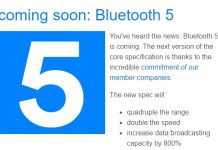 Would that J.K. Rowling and her publishers let the Potter books be available as affordable e-books. You already know my feelings on that score. Lower e-book prices, not just sheer availability, would help—both anti-piracy efforts and sales. Perhaps as the e-book market grows, more publishers will catch on and not worry so much about cannibalization of p-book sales.
Would that J.K. Rowling and her publishers let the Potter books be available as affordable e-books. You already know my feelings on that score. Lower e-book prices, not just sheer availability, would help—both anti-piracy efforts and sales. Perhaps as the e-book market grows, more publishers will catch on and not worry so much about cannibalization of p-book sales.
Meanwhile, whether or not books are online legally, the piracy keeps growing—almost surely aided by OCRing of scanned p-copies, not just “liberated” e-copies.
The TeleBog’s latest discovery is a Russian site offering links to the works of such authors as Dan Brown (all the big titles), John Grisham (16 books, supposedly), and Helen Fielding (Bridget Jones’ Diary and two other works). Significantly, the pirated works come without cumbersome DRM.
Small problem bound to explode
Piracy is a small problem now for most authors, but the damage is bound to multiply as e-reading devices improve. As Garson and other TeleBloggers have noted, it’s not always clear that free e-copies will mean more revenue for writers. In this case we’re talking about here-and-now money for actual working stiffs, as opposed, say, to unborn heirs. Cut off or drastically reduce writers’ income and quality will suffer.
No, piracy won’t drastically curtail the lifestyles of the Browns, Grishams and Fieldings, but increased rip-offs would make publishers less likely to gamble on books of all sizes and thus reduce the incentives for more obscure writers to put forth the extra effort. I don’t mean just writing but also research. The Web helps but is hardly a panacea. Professional writers ideally will do pro-bono work, just like public-spirited programmers, but that’s not the same as turning everything into “free.” As I see it, the real solution will be not in Draconian DRM but in new business models that are more friendly to writers and readers alike—including, yes, well-stocked national digital libraries. Not to mention the subscription approach.
The Google culture wars
Speaking of the Net and its effect on culture and writers, check out Why Google’s universal library is an assault on human identity, from ZDNet‘s Andrew Keen.
Excerpt: “Taking a few words out of one text, replacing them with a few words from another, is the surest way to undermine the coherence of any textual argument. (Re)mixing Alan Bloom, Harold Bloom and Amy Bloom into a Blooming synthesis might be attractive to fashionable Web 2.0 theorists like Kevin Kelly or William Gibson. And, yes, mash-ups are okay when you are synthesizing mapping software with store locators. But (re)mixing great books like Plato’s Republic with Hobbes’ Leviathan will create intellectual garbage…I don’t care how ‘intelligent’ Google’s algorithm becomes, it will never be able to either understand or mimic the seduction of an autonomous text.”
The other side
Exactly! But as a writer, I also see another side of the argument. I can’t tell you how much easier it is to research books—and work from authoritative sources—with Google in existence. Not so long ago a friend looked over a manuscript of mine and saw a reference to a “jag-toothed balcony.” Was that detail right? Well, I proved it—with a photograph of the actual building. Such are the wonders of the Web, and smart mash-ups could only help me find the information I need more easily.
As for proper use of mash-ups, I would agree on the need to avoid an arbitrary, mechanistic approach, except for sheer entertainment. But the “Blooming” example that Keen gave was a tad extreme. What about mash-ups based on intelligent use of tags, and ideally with human intervention? Techmeme, which I love, is a wonderful mix of news stories and blogs reacting to them. Who can convincingly argue with that?
Three other links of interest today:
—Wikipedia’s war against credential fraud, discussed in LISNews.
—OverDrive Download Audio Book Service Tops 1 Million Users (PR release). Remember, that’s just one company—which these days seems to be library focused. Of course, I wish that when one found audio books in collections, the texts would more often be there as well.
—Tablets in schools, from Laura Fox. I couldn’t get the video to download, but the ballyhoo certainly looked intriguing. I wonder how much e-books count at Forest Ridge School of the Sacred Heart in Bellevue, Washington. At least at first glance, I couldn’t see any mention of them on the page about the 14,000-volume library.


































[…] probably should take a policy stand on authentication and the library role as a trusted repository of digital […]